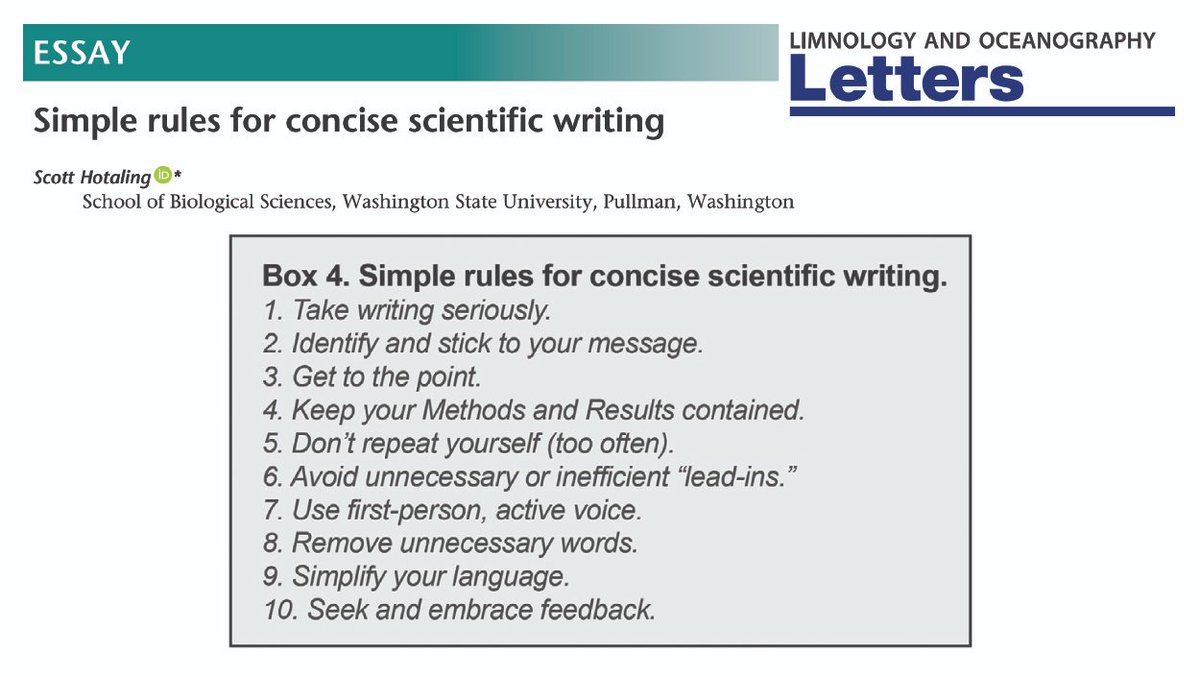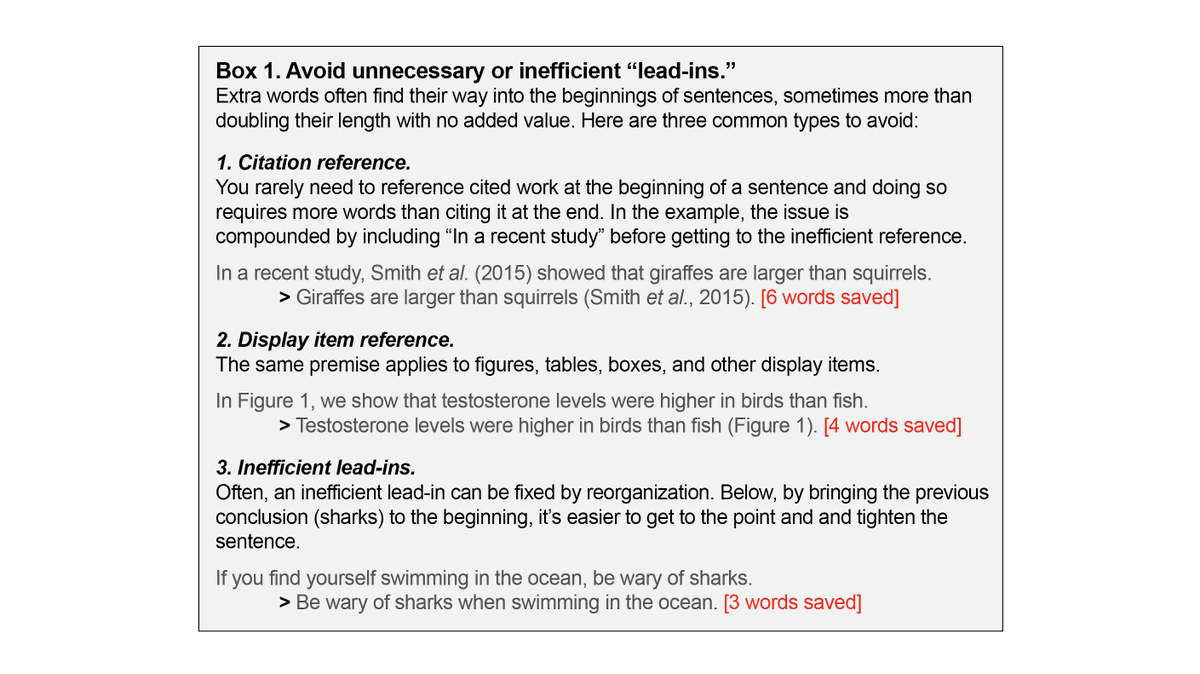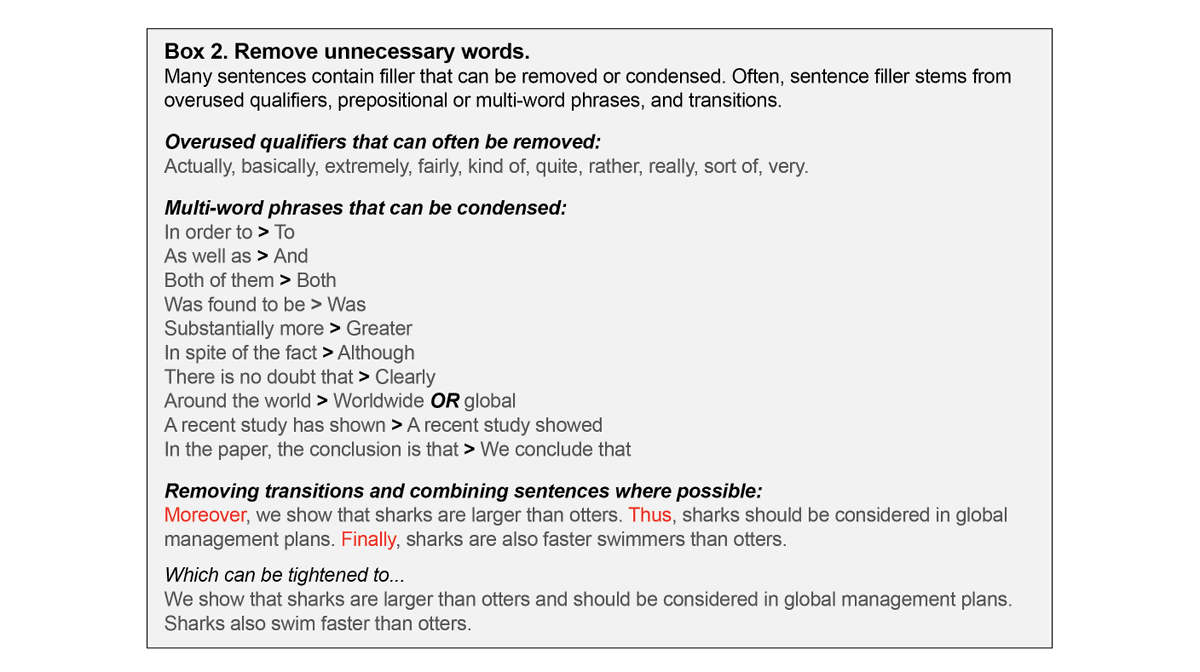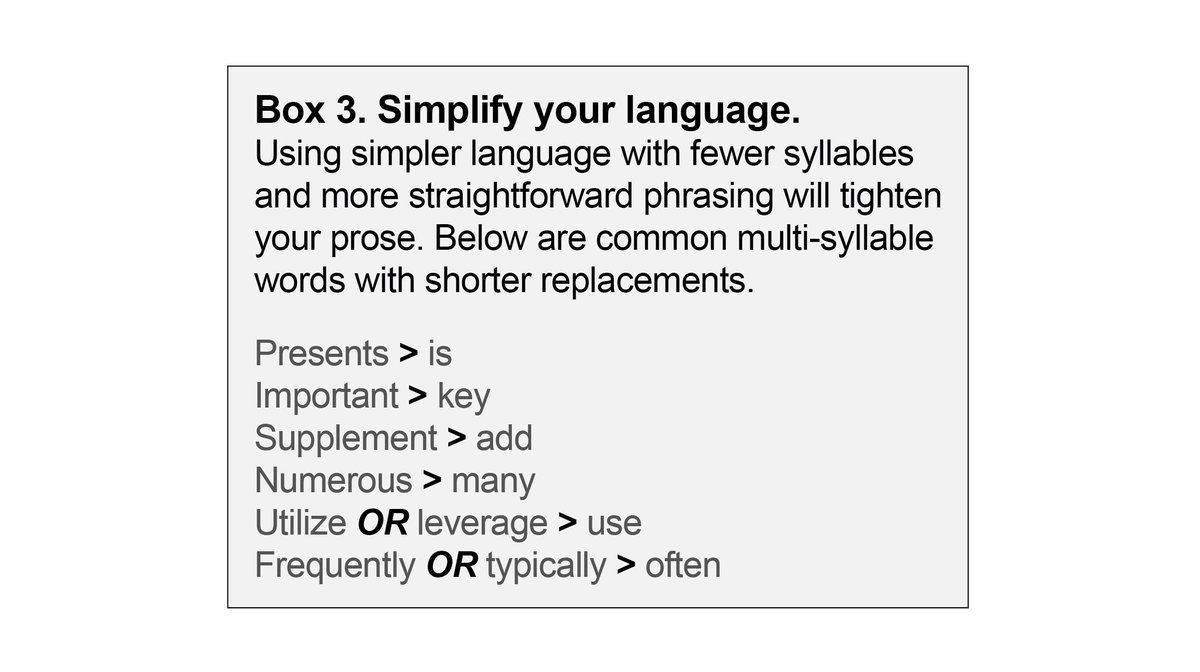This past winter, I wrote a paper to help: “Simple rules for concise scientific writing”
It’s now out and #OpenAccess: aslopubs.onlinelibrary.wiley.com/doi/full/10.10…
A thread... 1/18
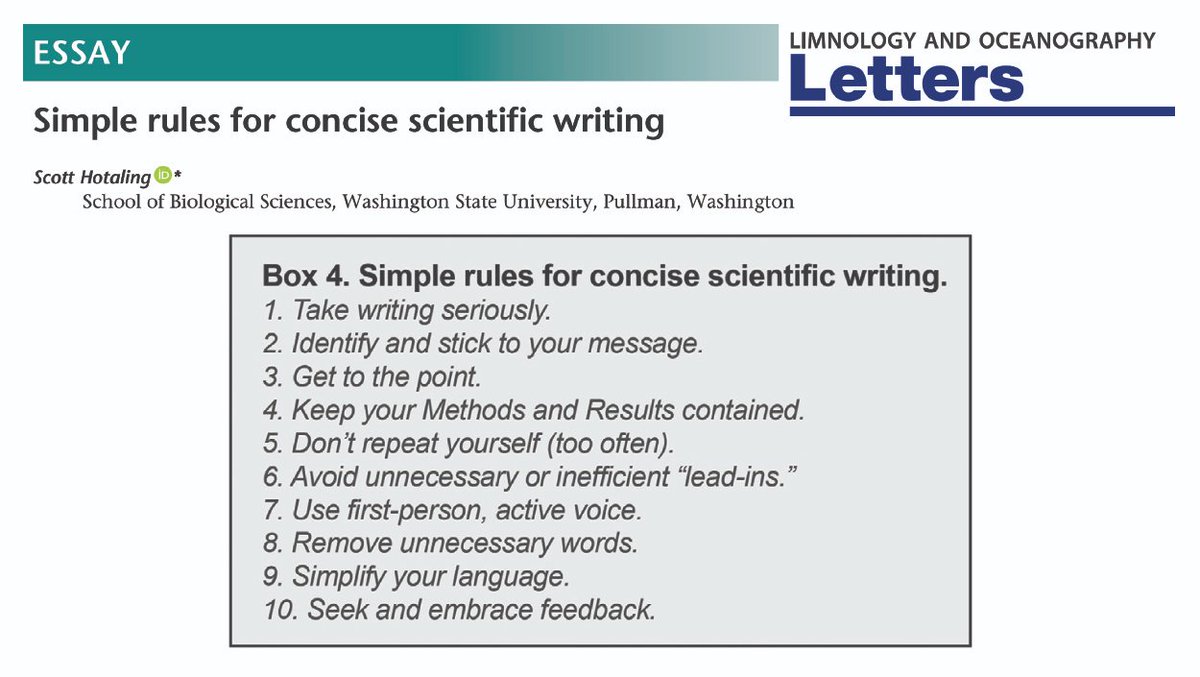
--Blaise Pascal (ca. 1657)
This quote sums it up! Concise writing takes time. You have to *work* at it.
2/18
It means you are clearly giving the reader all of the information they need in as few words as possible. You're being brief but comprehensive. Not trivial, huh?
But, we can make it easier. Let's go through some "rules."
3/18
Spend time on it, read good writers (including non-science!), learn, listen, practice. Rinse and repeat. Like anything, writing is a trainable skill. It just takes putting in the work, being humble, and listening to those around you.
4/18
Early in the process, ask yourself: what is the goal of this paper (or email, grant, etc.)? Try to summarize it in a few sentences. Once set, every paragraph, sentence, etc. should flow from that overarching goal.
5/18
That’s all. Just get on with it. Everyone will be happier if you do.
6/18
This goes for other sections too, but it’s especially common to see authors re-hashing their results in the Discussion or re-describing why/how they used a method outside of the appropriate section. Don’t do that.
7/18
Building on #4, a redundant paper will annoy your reader and make your work seem lazy. Read (and re-read!) your writing with a specific eye towards cutting repetitive text or ideas. If you think you're being redundant, you probably are.
8/18
We analyzed the data. We wrote the paper. Our results show...
It’s more direct, generally tighter, and almost always more interesting/easier to follow.
10/18
This is probably the most important rule in this thread. We are typically blind to issues in our own writing until someone points them out. These people are heroes. I mean, it hurts in the short-term (that’s okay!)...
13/18
14/18
15/18
16/18
I’ll put the full list again below.
PDF 🔗: aslopubs.onlinelibrary.wiley.com/doi/epdf/10.10…
17/18
